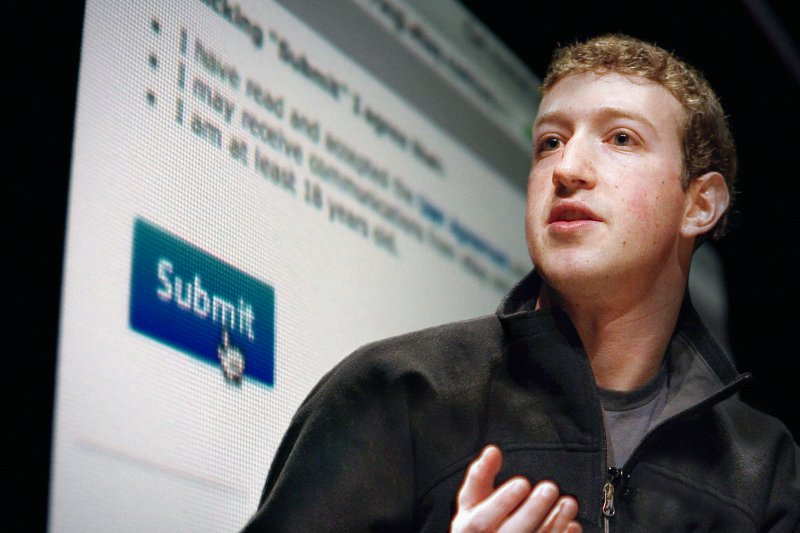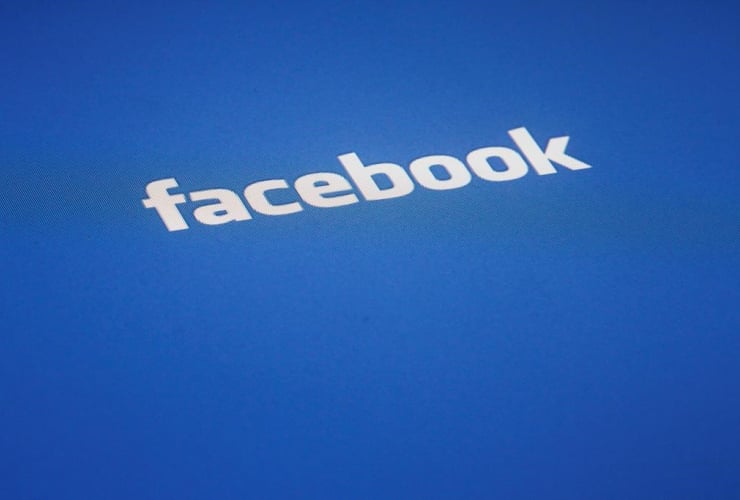More than 87 million people were affected by a data scandal involving political campaigning firm Cambridge Analytica and Facebook, the social media company said on Wednesday.
In new numbers released in advance of a conference call with Facebook founder Mark Zuckerberg, the company estimated that nearly 82 per cent of those affected were in the United States.
But it also estimated that 622,161 Canadians were affected by the breach after they or their friends used apps that were deployed to gather personal information about people on Facebook.
The scandal, first reported by The Guardian in the United Kingdom and the New York Times, revealed that the firm used data to target and influence voters in recent campaigns such as mid-term U.S. elections in 2014 as well as Donald Trump's victorious bid for the White House.
'I'm not trying to defend this'
In the conference call, Zuckerberg took responsibility for what he said was a failure to take a "broad enough view” of how its users' information was being disseminated to third parties.
“In retrospect I think we should have been doing more all along," he said. "I'm not trying to defend this now...knowing what I know today, clearly we should have done more."
He said the view in the company for years had been to develop and release tools to help people become more connected, and that it was largely people's responsibility to decide how to use those tools.
Now, he said, "we understand that we need to take a broader view of our responsibility."
However, the social network boss said he wasn't about to step aside, as New York City Comptroller Scott Stringer, who manages the city's pension funds with a $1 billion stake in Facebook, has called for.
“I think life is about learning from your mistakes and trying to move forward," said Zuckerberg.
"When you’re building something like Facebook that is unprecedented in the world, there are going to be things that you mess up."
He also wouldn't say whether anyone had been fired over the Cambridge Analytica scandal. The company is still working through it, he said.
"At the end of the day, this is my responsibility. I started this place, I run it....I’m not looking to throw anyone else under the bus for mistakes that we’ve made here."
One thing he did mess up, he admitted, was the issue of fake news.
Days after the 2016 U.S. election, Zuckerberg dismissed the notion that fake news had influenced people on the platform as "crazy." Since then the platform has admitted that 126 million Americans may have seen Russia-linked political posts.
Later it admitted it sold about 3,000 ads that were connected to hundreds of misleading accounts or pages that "likely operated out of Russia." Facebook has also moved to try and prevent what it calls "bad actors" from hacking Canada's democracy.
“I made a mistake by dismissing fake news as crazy," Zuckerberg said on the Wednesday conference call.
“What I think is clear at this point is that it was too flippant, and I should never have referred to it as crazy. This is clearly a problem that requires careful work."
Zuckerberg also made it clear that he thinks data that users willingly upload to Facebook and make publicly available is fair game for third parties, because it's public.
And he said most information the site has is because users chose to share that information. It wasn't clear whether he was including how Facebook tracks users as they browse around the web.
"People share information, we use that to help people connect and make the services better, and we run ads to make it a free service that everyone can afford," he said.
“People tell us that if they’re going to see ads, they want the ads to be good...that the ads are actually relevant to what they care about."
Rooting out the IRA
Facebook is conducting audits of its system that it built to disseminate user information on third-party apps, said Zuckerberg.
On Tuesday, it outlined how it removed 70 Facebook and 65 Instagram accounts, as well as 138 Facebook Pages, controlled by the Internet Research Agency (IRA), an organization tied to Russian efforts to influence the election.
As revealed by U.S. special counsel Robert Mueller's investigation, the IRA began as early as 2014 and was given a budget for graphics, search-engine optimization, data analysis, hardware and salaries with bonuses.
Taking down the “network of fake accounts the IRA has been using” is a priority for Facebook, said Zuckerberg.
Facebook is also undertaking election integrity missions, said Zuckerberg. He said this year will be "an important year for protecting election integrity around the world," as he singled out upcoming elections in Mexico, India, Brazil, Pakistan, Hungary and the U.S. midterms.
Facebook recently launched a fact-checking mission in Mexico leading up to its election, he said. New tools have already been deployed in recent elections, he added, such as in the French and German elections, and in the Alabama special election.
He also described three general areas Facebook is examining more closely: "economic actors" looking to make a buck off sensational material, "national security issues" like Russian interference, and "legitimate media."
Economic actors, he said, are relatively easy to deal with, by changing settings on the site to make their activity less profitable. National security issues is about identifying fake accounts, which may or may not be publishing real information.
As for media, he said there needs to be more fact checking and dealing with the issue of what he called "polarization," driven by "cherry picking" facts. The key to this, he said, was “promoting broadly trusted journalism."
In all, he said there were 15,000 people working on security and content reviews, and the firm is working up to 20,000.
“This is going to be a never-ending battle,” Zuckerberg said.
“We were behind and we didn’t invest enough upfront...I’m confident that we’re making progress against these adversaries. But they are very sophisticated."
Editor's note: this article was updated at 6:05 p.m. ET on April 4 to include information from Zuckerberg's conference call.
Fire his ass. TV was the
Fire his ass. TV was the beginning of the downfall of civilization and the computer will be the final nail in the coffin. I said this 20 years ago. RIP




Comments